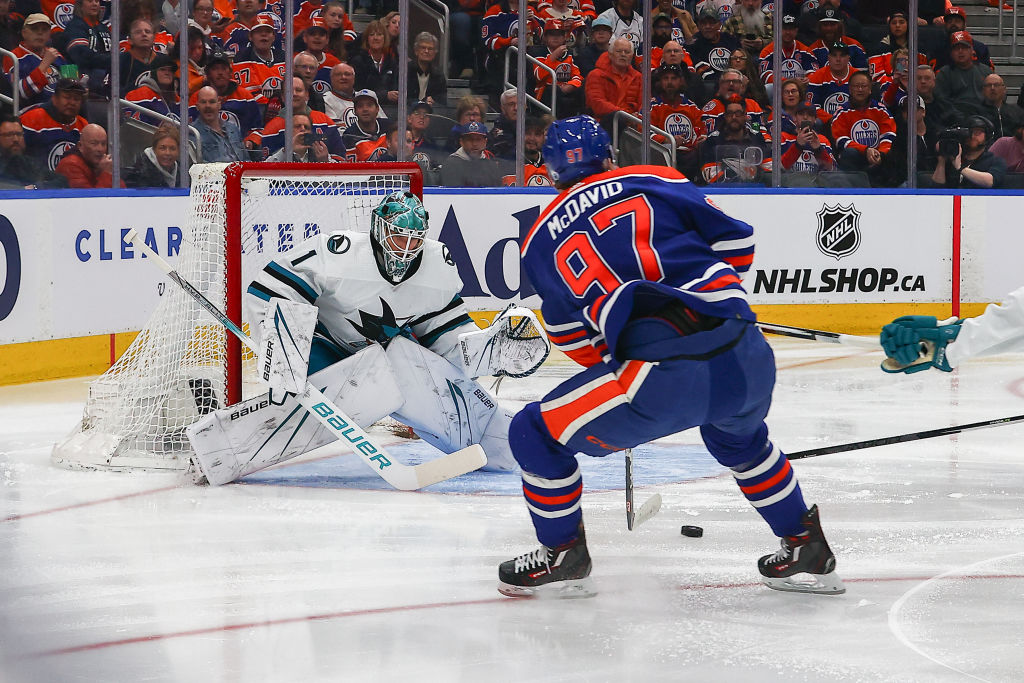SAN JOSE – Although their record of 6-4-0 is only slightly above average, the Sharks feel they are outplaying their competition most nights.
Some stats bear that out. San Jose is third in the league in shots per game with 32.3, while allowing just 25.7, second fewest in the league. The advanced stats say that the Sharks are a league-best plus-83 in shot attempts in close games, which is much higher than the second place club, Toronto (plus-55).
Goals, though, are still lacking. The Sharks are averaging 2.5 goals per game, tied with two other teams for 20th in the NHL. Too often they've failed to capitalize on scoring chances.
That's something the Mircosoft Excel crowd hasn't figured out how to track just yet, so we'll just have to take the head coach's word for it.
“We’re out-chancing teams almost every night,” Pete DeBoer said. “It’s just a little bit of killer instinct [that is lacking].”
There have also been some frustrating lapses. Against Pittsburgh on Oct. 20, the Sharks played what was their best period of the season to that point in the second, and followed it up with one of their worst, as they saw a 2-0 lead after two turn into a 3-2 regulation defeat.
Against the the much weaker Coyotes on Tuesday, a strong first period was followed up by a miserable middle frame – perhaps their worst 20 minutes of the season. That was all Arizona needed to score three goals, including two that were just one minute and eight seconds apart, in claiming a 3-2 victory.
Sports
“We played [a] really good first period, we had a lot of chances, and after we just stopped playing,” Tomas Hertl said. “Almost the same against Pittsburgh, we dominate the whole game and we stop playing for 10 minutes, and it’s boom, boom! That’s hockey, it can be just two minutes and you lose [the] game.”
The Sharks have outscored their opponents 9-2 in the first period, but are being outscored 22-15 in the second and third periods, combined.
DeBoer said: “I think we’ve had some really good starts, we’ve kind of dictated games early and haven’t put teams away or in a deep enough hole for that. You come out of dominant periods and you’re only up 1-0 or tied, you’ve actually given the other team some life. They can walk in and kind of reset, and realize, ‘hey, we haven’t been good, and we’re still in this game.’”
“[When] you have a team on the ropes, you try and get that second one, that third one to really put them out of the game,” Patrick Marleau said. “One little bounce here or there changes the game if [it's] close. You try to put them away as quick as possible.”



